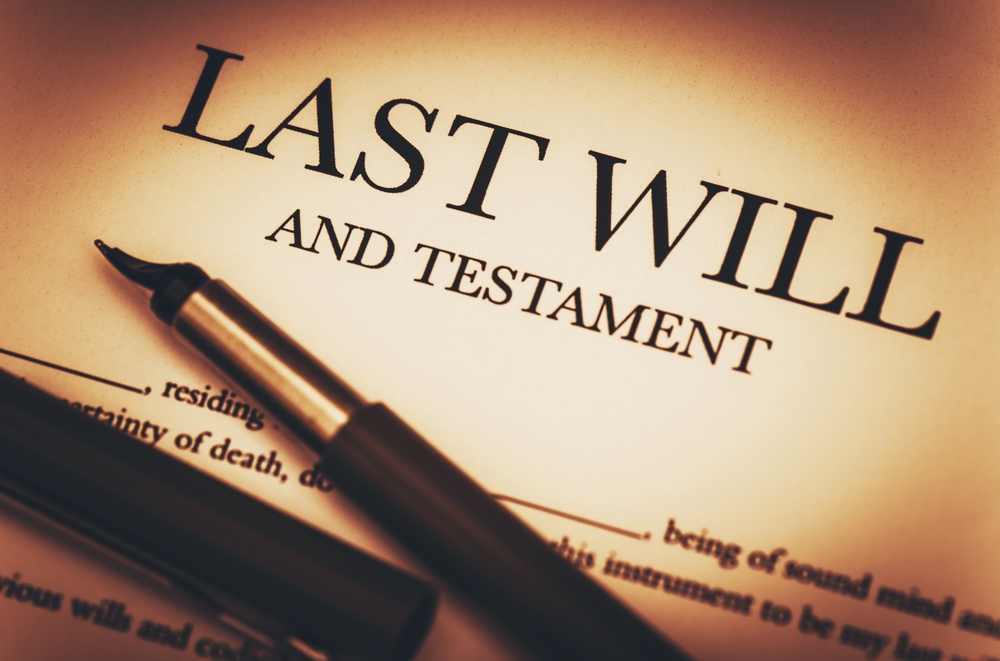“Daddy, what happens to your guitars when you die?”
My daughter has a habit of asking jarring questions like these, especially when she’s unable to overcome the urge — inscribed in our house rules — not to bother me in my office during working hours, unless it’s an emergency.
That’s pretty much always. The first time she asked that question I didn’t have a ready answer. After all, it’s hard to explain the concept of “probate” to a 7-year-old.
But I have an answer for her now … one so simple that even a child can understand it.
The Probate Pit
Probate is the compulsory legal process when a person dies. It inventories your assets, ensures that all your debts are settled and distributes the rest to the heirs designated in your will.
If you didn’t leave a will, however, each state has its own rules defining who is entitled to receive your property, and how much. This “intestate” probate process can be lengthy, during which time your heirs have nothing — sometimes, not even access to your life insurance proceeds. Most states have minimum periods that creditors are allowed to respond, during which your estate can’t be distributed.
Probate is also costly. There are attorney’s fees, executor’s fees, court filing fees and other costs. Many states set these fees as a percentage of the value of your estate. Others allow attorneys to charge an hourly fee, subject to court approval of its “reasonableness.” That can spell big trouble if the probate judge is a golfing buddy of your parents’ attorney.
Do You Need a Will?
You’ve probably heard that musician Prince recently died intestate. Many people are incredulous that he neglected to draw up a will, especially since the bulk of his estate is publishing rights to his music, valued at around $300 million.
Prince’s reluctance probably had something to do with his almost irrational dislike of contracts — even a will, which is basically a contract with your future deceased self. But Prince was part of the 55% of Americans who die without a will.
In some cases, that makes economic sense. If you have little to leave behind, a will could cost more than probate would. If you have no instructions for your remains or messages to deliver to your heirs — another role of a will — then maybe you can do without.
On the other hand, anyone smart enough to sign up for Sovereign Investor Daily probably needs a will. That’s because it’s not just the size of your estate that matters … it’s also what’s in it that’s critical.
If you have more than a bank account, a home and a few personal possessions, a will is critical to ensure some control over how those assets are handled after you’re gone. For example, if you own a business and your heirs can’t agree on whether to keep it running or cash it in, a probate judge may order it sold so it can be divided according to state law.
In my case, ownership of properties in more than one country, various investments and a collection of valuable musical instruments makes a will a no-brainer.
Is a Will Enough?
Here’s a simple rule: If the value of your and your spouse’s estate is more than the combined gift/estate tax exemption — currently $10.86 million ($5.43 million x 2) — then you need more than a will. In that case, you need to move some of your assets out of your estate … but still make them available to your heirs.
For example, the death benefit of a multimillion-dollar life insurance policy will be included in the value of your estate. Plenty of people are shocked to discover that their parents’ insurance, investments, property and other assets put them into estate tax territory … which is expensive and complicated.
If you have long-term investments with unrealized capital gains, for example, on your death, the appreciation on those investments from the date of purchase will be considered income for estate tax purposes, even if they aren’t actually liquidated. That could mean that your heirs have to liquidate something else — say, the family house — to avoid having to sell valuable stock.
In such cases, you would benefit from an irrevocable trust to receive certain assets (either before or at your death). Those assets are excluded from the calculation of your estate. Such a trust could even be the beneficiary of your life insurance policy, keeping it, too, out of your estate … and out of probate, since trust assets aren’t yours.
Prosperity in the Hereafter
Some folks rely on faith to meet their wishes for the future. I’m not one of them. Faith always has a part to play, but when it comes to your heirs, nothing beats a good old-fashioned contract with yourself — a will.
If you haven’t already done so, I urge you to explore the many articles my father Bob Bauman and I have written on estate planning in The Bauman Letter … and if you don’t have a will and/or trust, call one of my trusted contacts without delay.
After all, we know not the day nor the hour…
Kind regards,
Ted Bauman
Editor, The Bauman Letter
